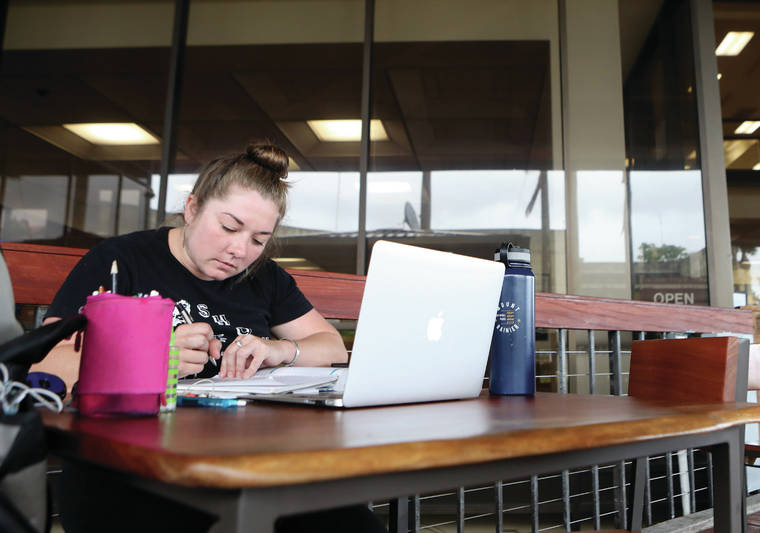More than 100 international students at the University of Hawaii at Hilo could be affected by new guidelines issued last week by U.S. Immigration and Customs Enforcement, university officials say.
The new guidelines — which do not allow international students pursing academic and vocational coursework to take a full online course load and remain in the country — roll back temporary exemptions that allowed these students to take more online courses than normally permitted in the spring and summer semesters because of the COVID-19 pandemic.
Visas will not be issued to students enrolled in schools or programs that are fully online in the fall, nor will the students be permitted to enter the country, the guidelines state.
Students already in the U.S. and enrolled in academic programs will be required to leave the country or take other measures, such as transferring to a school with in-person instruction, to remain.
UH-Hilo Vice Chancellor for Student Affairs Farrah-Marie Gomes said the guidelines make it harder for international students to continue their education.
“It may be safer for students to stay where they are, and if an institution is able to deliver curriculum that meets their needs, that meets the program requirements, then that’s a win-win,” she said. “Students are able to stay safe wherever they currently are at, while remaining on course toward their degree.”
According to Gomes, up to 105 students at UH-Hilo could be impacted by the new guidelines if they choose not to return to Hilo for in-person classes.
The guidelines would only affect those who return in the fall and attend class on campus if classes were to shift to a completely online format, as happened in the spring.
International students who want to remain in their home country and enroll in online courses can do so, Gomes said.
“So overall, we are looking at this impacting less than 100 students, but it puts the students in a really uncomfortable position to decide on traveling back to Hilo for the sake of staying enrolled, or staying where they’re at, remaining safe until the pandemic passes over, and that’s a hard decision to put on a college student.”
In an email to the “University of Hawaii ohana” on Thursday, UH President David Lassner said it has long been the case that international students cannot take a fully online course load while in the United States, but the new guidance would apply even if a student’s courses were to shift fully online in the middle of the semester.
“We view the new guidelines as unfair, harmful and inappropriate in the unpredictable situation we all face during this COVID-19 pandemic crisis,” Lassner said. “The federal government’s new guidance has created unnecessary fear and uncertainty for international students on our UH campuses and across the nation.”
Because the new guidelines were just announced, Gomes said many organizations are still trying to understand them and determine the impact to international students. On Wednesday, Harvard University and the Massachusetts Institute of Technology filed a lawsuit to try and block the mandates, according to the Associated Press.
“I expect there to be conversation and maybe possible adjustment to the guidelines,” Gomes said.
U.S Rep. Ed Case on Wednesday also expressed his opposition to the new guidelines.
“Unfortunately, this proposal arises from the same seriously misguided goal of forcing schools to reopen nationally regardless of local public health conditions,” Case said in a news release. “But it will actually harm public health by offering colleges and universities dependent on international student income no choice but to physically open or risk closing altogether.”
According to Case, there are more than 4,000 international students taking classes in Hawaii, contributing an estimated $121 million annually to the state.
“On a national level, this proposed policy also sends the wrong message at a time when new international student enrollment in the United States has been on the decline for three consecutive years of this administration, especially as other countries like Canada, China and Australia are actively competing to attract more international students to their universities,” he said. “We are losing that race, making our students and our economy less competitive in a global market and ceding an important space where American values and ideas can be freely exchanged and spread.”
There also still is a concern that new international students will not be able to get the necessary visas to study at UH-Hilo. Gomes said many countries have not reopened their embassies. Most continuing international students, however, have visas that are still current, she said.



